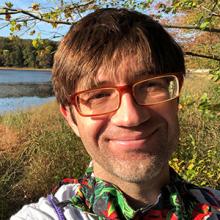Lindy Elkins-Tanton: Why Teamwork Helps Scientists Thrive
In this episode of Inside Science Conversations Chris speaks with Dr. Lindy Elkins-Tanton about her work on NASA's Psyche mission and what got her into science. Chris also asks Lindy about what she calls the “hero model” of science and her ideas about how making changes to the way teams are built may produce better results.
The show is available on many of your favorite podcast platforms, including Apple and Spotify. It's also on YouTube.
Here are some excerpts from the interview (the full transcript is available here):
About the sprint to the launch of NASA's Psyche mission: "It's hard to even express how intense it is right now. At the end of April, beginning of May, we're meant to ship the spacecraft from Jet Propulsion Laboratory in Pasadena, to Florida, so it can get integrated with its rocket, which is a SpaceX Falcon Heavy, and get ready for our launch period, which opens on August 1. So if everything goes beautifully, we're going to launch on August 1. But of course, first of all, we're building a spacecraft. And the team has been as large as 800 people. It's a big endeavor. … When its solar arrays are unfolded, it's going to be the size of a single tennis court. It's a big undertaking, doing it under any circumstances is difficult. Doing under COVID is very difficult, because you cannot build a spacecraft remotely through zoom, sadly."
About teamwork and the limits of individual expertise: "So many of the problems that we're trying to approach in today's world cannot be understood completely by any single person. We have outgrown the age where -- you're not Lord Kelvin, you can't discover new chemistry in your kitchen, probably, by yourself. You know, we've gotten to this point where, this amazing point actually, in human evolution where the things we're trying to build or solve cannot be understood by a single person. They have to be done in teams."
About the culture of academia and science: "A lot of us have noticed in academia, I think, that the culture is not always fabulous. It can be, right? It can be the best ever, it can be filled with creative ideas and enthusiasm and coming to work could be such a pleasure. Or it can be a place where there's a lot of harassment and bullying and exclusion, and where people shout each other down. And where junior people, or unexpected voices are not listened to, you know, where the heroes own the concepts, and will accept no contradictions. And that is not a positive model for people trying to join the field for creating any kind of diversity or inclusion, because people who come in who are not in the standard model of the people in academia are not going to feel welcomed by this or supported. It's very bad for diversity of ideas. It's bad for rapid progress. And so culture is the first thing that I started thinking about, how do you make a team where people get listened to and where new ideas are welcomed, and where the person is they gain power in their seniority, use the power to help other people rather than to suppress them?"
Our next episode is scheduled to come out at the end of February, please like and subscribe to the show on your favorite platform. We hope you enjoy the interviews.
The Inside Science Conversations podcast showcases the human side of science. It's about what makes scientists and researchers tick. We'll cover a wide variety of subjects, from record-breaking running to the hidden history of science. Please, like and subscribe to the show on your favorite podcast platform. Join us as we talk to researchers and authors about their work, their lives and why science is important for everyone.

